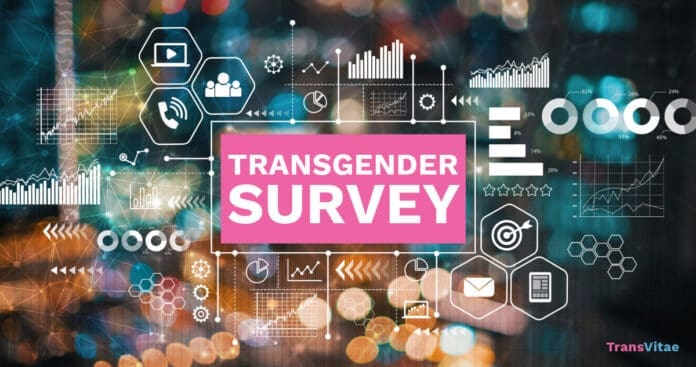The most comprehensive survey ever conducted on transgender lives in the United States has delivered powerful data that affirms what many in the community have long known firsthand: gender-affirming care vastly improves quality of life, and most so-called “detransitions” are not due to regret, but to discrimination.
Released June 11, the 2022 U.S. Transgender Survey (USTS) compiled responses from over 84,000 transgender, nonbinary, and gender-nonconforming adults. Coordinated by Advocates for Trans Equality (A4TE), it marks the largest and most detailed national snapshot of trans experiences in U.S. history.
Among the most critical findings: only 9% of respondents who transitioned reported at any point going back to living as their sex assigned at birth. Of those, nearly every single person cited anti-trans discrimination, from family, employers, or broader society, as the driving force. Just 4% of that subgroup (or roughly 0.36% of all transitioned respondents) said the reason was that transition “wasn’t right” for them.
“Social and structural explanations dominated the reasons,” the report stated. “In almost every case, the reason was anti-trans discrimination from one’s family, friends, or community.”
These findings cut sharply against common misinformation campaigns perpetuated by far-right outlets and politicians, which claim detransitioning is widespread due to “transition regret.” The USTS data tells a different story: one of resilience, joy, and lives significantly improved by gender-affirming care.
A staggering 98% of respondents who accessed gender-affirming hormone therapy (GAHT) reported being “more satisfied” with their lives. For those who underwent gender-affirming surgeries, that number was nearly as high at 97%.
“I have thrived in the past 12 months in transition,” shared Charlotte, a trans woman who responded to the survey. “I have a genuine smile on my face most days and laugh with genuine joy. I have grown into the woman I was meant to be.”
Roo, a nonbinary participant, put it in more colorful terms: “Once I learned what it meant to be trans, I never looked back. I traded in my Regina George-esque life for a future with a balding head and a predisposition for a beer gut. I’ve never been more happy to be alive, every single day.”
But despite these overwhelmingly positive outcomes, the survey also reflects the increasing external pressures trans people are facing. The report contextualizes its findings within a dire political climate: 315 anti-LGBTQ bills were introduced in 2022 alone, followed by 571 in 2023 and 489 more in 2024.
“This political landscape has only worsened,” the report warns, noting that even as protective policies have expanded in some areas, many states are actively undermining access to care and legal recognition.
Olivia Hunt, Director of Federal Policy at A4TE, stressed the importance of data in combating harmful narratives: “Having real, concrete, and rigorous data about the realities of trans people’s day-to-day lives is a vital part of dispelling the assumptions and stereotypes that plague public discourse.”
The survey also underscores stark racial disparities, with trans people of color reporting significantly higher rates of discrimination and social rejection. This gap continues to shape trans health outcomes, job access, and safety in public spaces.
The findings reaffirm a painful but urgent truth: gender-affirming care saves lives, but transphobia still drives far too many to the margins.
As lawmakers, media figures, and institutions debate the legitimacy of trans existence, this landmark study delivers an undeniable verdict. Trans people aren’t suffering because they’re transitioning; they’re suffering because they’re being persecuted for it.
The full report from the 2022 USTS is available through Advocates for Trans Equality, offering one of the clearest, most authentic portraits of the transgender experience in modern America.


